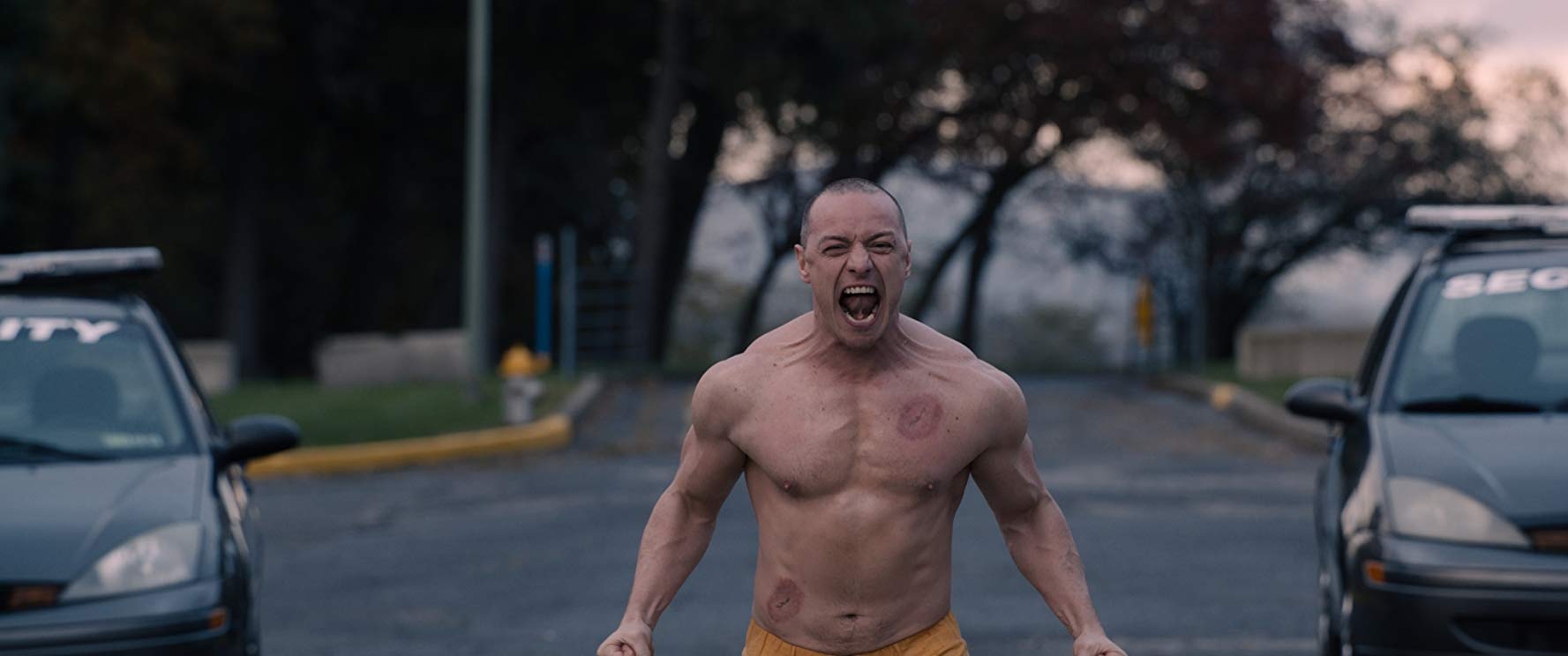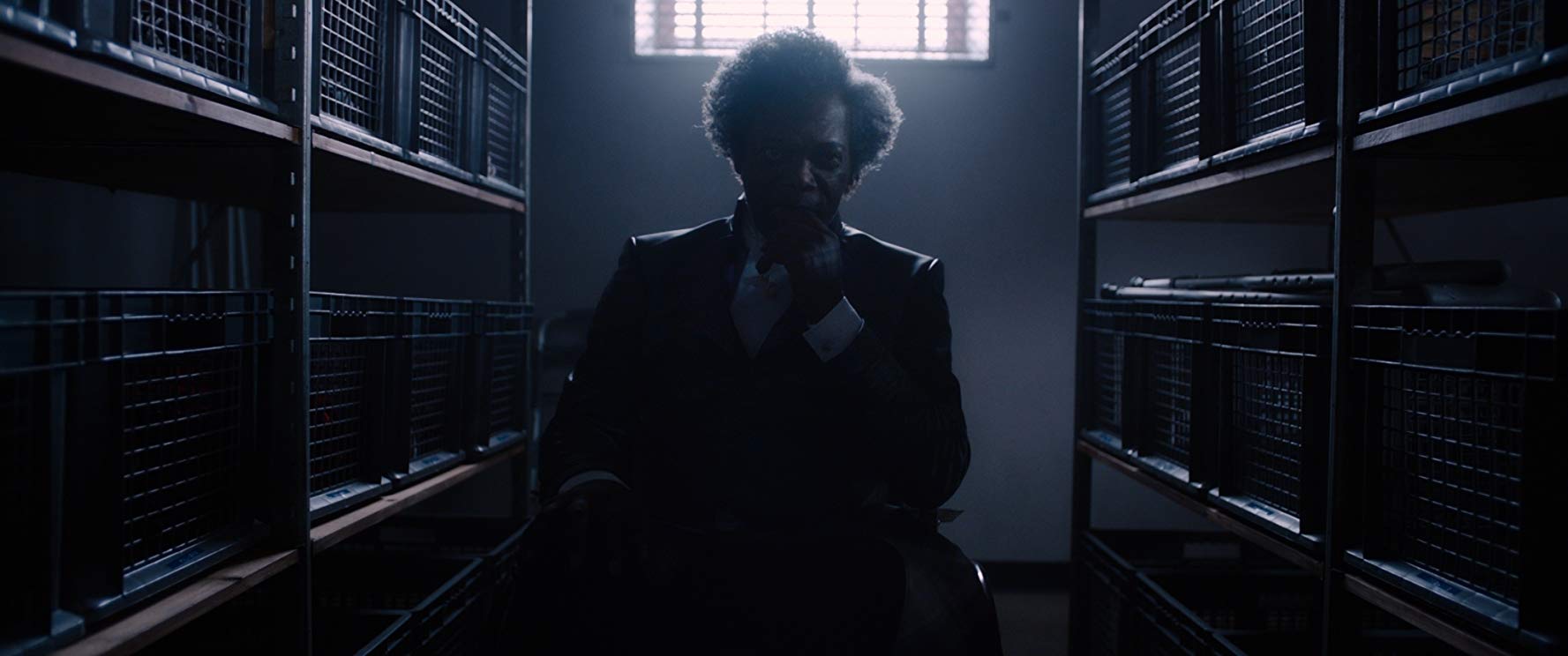After a strong start, GLASS devolves into a flimsy and unsatisfying sequel…sort of.
By Matt Cummings
If you’re like me, you harbor a handful of cinematic failures that either ruined your childhood or made you wonder why studios kept taking chances on their directors; for me, it’s George Lucas, Michael Bay and M. Night Shyamalan. Unlike the others, Shyamalan is having a bit of a renaissance, with his impressive and deeply creepy SPLIT still resonating. As his finale to that series – GLASS – stands ready for wide release, one would have hoped that it would hail as Shyamalan’s triumphant return. Instead, it meanders too much, spends too much time with certain characters, and presents a somewhat disappointing finish, although a reveal late in the film offers an interesting angle for future films to be made, if we even care by that time.
THE MOVIE
Set not long after the events of SPLIT, we learn that The Horde and his 23 personalities (James McAvoy) are hard at work ridding the country of purity by incarcerating four teenage cheerleaders in a dingy warehouse. David Dunn (Bruce Willis) – whom the public has anointed as The Overseer – has donned his hooded security jacket in an effort to save them, while the terrorist Elijah Price/Mr. Glass (Samuel L. Jackson) has been imprisoned for the last 18 years. After being arrested, the trio find themselves in the same prison, under the scrutiny of Dr. Elie Staple (Sarah Paulson), who has only three days to cure them before they are separated by the government. But Glass has a plan to break them free, convinced that The Horde and The Overseer must fight in an epic battle to reveal that superheroes are real. With time running out, Kevin’s former captive Casey Cooke (Anya Taylor-Joy) and Dunn’s son Joseph (Spencer Treat Clark) race to rescue Kevin from The Horde and Dunn before Staple can shut them down.
Shyamalan crafted two gems in SPLIT and 2000’s UNBREAKABLE, pitting each film as an intense character drama under the guise of a superhero origin story. Those films worked, not only because they started strong, but Shyamalan’s classic reveal engine delivered stunning endings that fueled interest in finishing the trilogy.
And while GLASS starts off promising, that epic battle I mentioned never really satisfies, while the reveal is only interesting assuming they make more movies. This really is a sequel to SPLIT rather than UNBREAKABLE, as Willis is simply not in it enough, mumbling his words as he’s now likely to do in every movie, and Elijah mostly silent until his plan is revealed. Granted, there is a throwdown near film’s end, and McAvoy is just brilliant as The Horde throughout, but the payoff simply isn’t there. Your enjoyment will depend on what sequel you want this to be, either a SPLIT one or a UNBREAKABLE one.
Shyamalan is more curious to see these three gather rather than giving them something meaningful to do. And Taylor-Joy who shined in SPLIT is reduced to Horde Groupie, as she tries to get the abused Kevin to take over The Horde in an effort to…save him? Date him? Etc etc? We don’t know., but it’s creepy Clark returns as well, but Joseph is also reduced to an angry late teen who neither seems capable to help his father escape nor even a make the case for his release to the gorgeous Paulson, who might be the surprise of the film. Shyamalan’s script uses the kids as plot points rather than a meaningful duo who could have broken into the facility to rescue Dad Dunn. But at least Paulson’s Staple figures to be part of any new films that Shyamalan might helm. It’s also been leaked by Jackson that GLASS’s ending was reshot, due to what Jackson described as, “the way society is and what’s going on in the world and what it would have looked like.” Perhaps one day we’ll see that alternate ending, as this one tends to go on for quite awhile before finally succumbing.
But don’t get me wrong: this isn’t THE LAST AIRBENDER or the even worse AFTER EARTH, but there’s something missing here. There’s nothing rousing about The Overseer breaking free, nor does it make sense why these three dangerous people are locked in a facility with such poor security. A movie like THE AVENGERS works not only due to the impressive SPX, but because it pits our team against each other via smart dialogue and funny moments that expose their weaknesses. Audiences dying to see GLASS won’t be terribly disappointed, but they’ll likely emerge from the theater a bit whelmed.
GLASS completes Shyamalan’s trilogy with a bit of a whimper, neither hitting it out of the park nor ruining our childhood with a mismanaged story. It keeps us busy with McAvoy’s wild performances, but never satisfies in a way that UNBREAKABLE and SPLIT did so completely. I find myself more interested in learning about the original ending than propping up its values, which tells me exactly what I thought of it. And it never fully engages the audience in its most fundamental question, which set this series off nearly 19 years ago: “What if superheroes did exist?”
GLASS is rated PG-13 for violence including some bloody images, thematic elements, and language and has runtime of 129 minutes.






